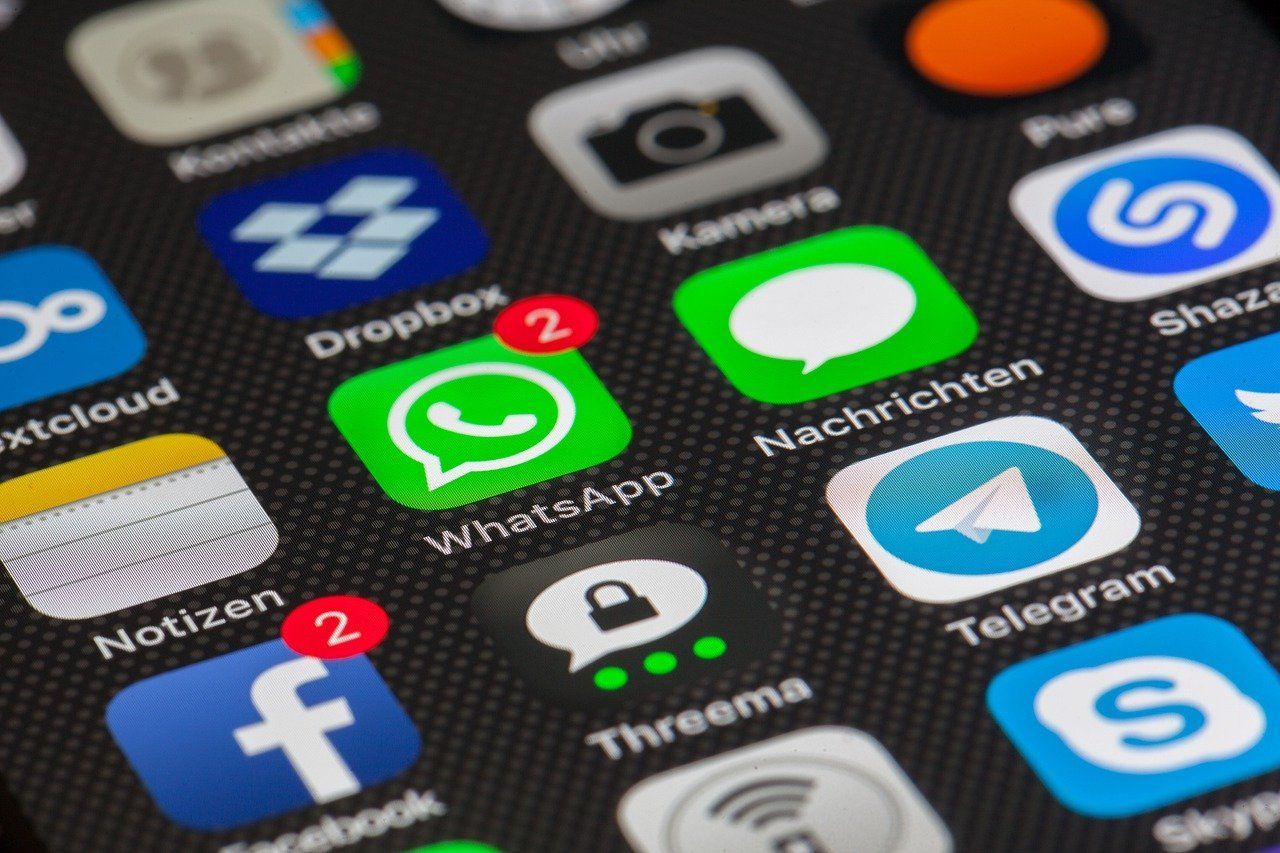This Slack discussion by Mario Vasilescu, Linh and me occurred in hackernoon's official #slogging-beta channel.
David
Hey mario, what are the vicious cycles of the attention economy that the internet needs to break? mario
- Stop treating the internet as primarily aligning with the attention economy in the first place! This is the biggest, most high stakes scam ever walked into by humans. The internet is, at its core, information and discourse. It is more closely aligned with the knowledge economy. Attention to information more logically associates with learning, not advertising value. The online education and L&D markets are almost twice as valuable (approx $560B) as the entire digital advertising market ($330B). If our attention was treated as learning value, this could completely flip all the worst parts of the internet on its head. Quality would suddenly be the name of the game, not quantity. It's not that Facebook and Google are in the image of the internet, it's that our modern web is in their image.
mario
2. Allowing the attention aspect to be so easily gamed. The standards for how somebody gains reach are far too easily manipulated. This itself is a vicious cycle of shitty one-upsmanship. A race to the bottom trying to beat the "Law of Shitty Click-throughs" with ever more shameless hacks, which also gradually become sort of acceptable.Whether it's with bots, or clickbait, or sheer money. We obsess over government regulation when most of our problems could be fixed with an agreed upon standard that accepts that free speech does not equal free reach, and sets some common sense thresholds in place.
If everyone wants to have a burner account and be keyboard warriors, that's fine, but the standard should not be that. You can go into the "unfiltered" tab or something to gorge on on the junk. Nobody said you should never eat McDonalds, but it shouldn't be the standard for a healthy society.
Just becomes something is easy to do, doesn't mean the impact should be guaranteed or consequence-free, regardless of the magnitude. A big red button to deploy a nuclear bomb is really easy to do, too.
Linh
mario so let me get this straight: You think that the companies are not necessarily at fault, it’s the users for giving in too easily? mario
No. That's the opposite of what I'm saying. The companies are definitely at fault. Everything I described above falls on the companies. mario
Both at the business model level and the UX level. Just like there are UX standards, there should be engagement and virality standards. The list I mentioned above, including reading before you share/reply, is a feature responsibility. You can't leave that up to users. Our brains and impulses are easily manipulated, we know that, it's the central thesis around why social media is so dangerous, right? We need filters that help keep things in check. If somebody is allowed to lay a trail of jelly beans to lure you into a dark forest, the groundskeeper can at least set things up that make you think twice, or make it a little more difficult.It would be easy to implement some of these things if they really wanted to. But they hinder the current business model - and my initial point is there is no reason it has to be the same business model.
Linh
gotcha. When you say “stop treating…” and when you mention “you” a lot of times I thought you mean users and not companies. Either way, what’s in it for them in this case to change their behaviors? Should it be like the finance industry regulations (not perfect)? mario
Ah sorry! Yes - definitely referring to the companies. Can see how that was unclear. mario
I think there are a few ways of looking at it: mario
- We already have precedent with TV and radio. There are clear rules in place in every country to protect society from unchecked broadcasting. So, again, free speech vs. free reach. The right to say something, is different from the right to be heard by 10 million people. You can look at this as a matter or regulation, but even more simply you can look at it as a matter of proof of work and consequence. Traditionally, somebody can't get on the radio or TV, with a wide audience, and certainly not at length, without identifying who they are. I guess this is a weird grey area where regulation or limits would apply to the users, as they approach the reach of traditional publishers?
- There's also the aspect of consequences. This part does indeed refer to the suers. We tend to treat the internet and the real world as separate. If you directed 10,000 people to harass somebody in real life, there would be consequences. If you tried to spread propaganda to 10 million people, there would likely be consequences. Yet it happens all the time online, consequence-free. Playing by different rules. That shouldn't be possible, should it?
- Lastly, whether it comes through something like what Andrew Yang suggested with his "Department of the Attention Economy", there should probably be some rules in place, maybe with some of the UX filters I've mentioned, or others, such that platforms beyond a certain size have to implement them to maintain a healthier information commons. Andrew's suggestion, if I remember correctly, was making infinite scroll illegal.
mario
So coming full circle to the question, there are lots of vicious loops, at the platform level, at the business model level, and between the two feeding off each other, and we can maybe break them up with some or all of the above. mario
Oh and what's in it for the platforms comes back to my original point. There is literally more money to be had in treating attention as learning/ acquired knowledge. The attention economy is still a tiny fraction of the knowledge economy. I really believe that we're stuck in a mental loop because of Google and now Facebook thinking this is simply the way it has to be monetized. The market sizing and sheer logic of it, don't square with that. Linh
I love that you break it down into 3 concrete, actionable changes. What do you think of congress’s recent fight against big tech? Will that lead to anywhere? Also would have loved for Andrew Yang to just hold on a little longer post pandemic. He should have talked about pandemic all along and not potential AI-replacing jobs. Love what that guy stands for. mario
#yanggang 😎 haha yeah, I definitely wish he stuck around longer. Amazing how perfectly his UBI message applies now. He was made for the pandemic. Anyways, I think congress' fight with big tech is largely political rather than pragmatic. I also am amazed how unrealistic some of the considerations are. On one hand, yes FB absolutely has the tech to do a better job moderating, if they wanted to - but on the other hand, expecting them to be responsible for all the content on the platform would have disastrous effects on free speech. Overall though I come back to the fact that we tend to over-complicated things. Gov regulation of the kind being discussed now feels more like semantics, or band-aids, versus more tangible user-level UX which cuts to the core of the problem mario
I mean, we have to ask ourselves, what are we actually trying to solve for with this potential legislation? And is this the most effective approach? I would argue almost certainly not, because it still allows the problems to proliferate in some form or another at a UX level. mario
Platforms can be forced to take responsibility all you want at this macro level, but if the users are allowed to have their worst impulses entertained, what really changes? Linh
I agree, the fight was portrayed as bipartisan but each party had a completely opposite agenda, assuring that it will lead to nowhere. I also find it fascinating that proposition 22 will likely pass in California even though the rhetoric has been so anti big tech. The whole renters vs owners problems in tech, particular tech in CA is real. I’m worried that even if anything meaningful were to pass, they will likely meet with oppositions and lots and lots of funding from big tech. mario
Yeah, agreed - and that is a whole other topic, the lobbying power of big tech. Financially and socially. Whether at a company level or even the whole Valley vs. Journalism undercurrent happening. mario
You could almost argue it's hard to fix any of the vicious loops of the attention economy until you fix the power loops between corporations and gov. Linh
That is why I was so fascinated (and absolutely horrified) to hear AOC’s 20 minutes explanation of dirty campaign financing and how that’s completely legal in the US under our current system. This will assure nothing meaningful will/can be done when it comes to healthcare, the climate, and now, big tech & the attention economy. https://www.youtube.com/watch?v=j_gxiMTIudA mario
Hadn't seen this take, thanks for sharing. Overall it feels like we tend to try to solve these massive problems in isolation, versus some of the systemic enablers. Even when we talk about climate change or pretty much anything else, you won't get far - or as far as you should - when you're swimming against the current of the attention economy's flood of misinfo etc in its current form. mario
Not to go too far on a tangent, but this article was a great read re: where the actual battles are being fought and why, and how it ties into everything. https://americanaffairsjournal.org/2019/11/the-real-class-war/ 
